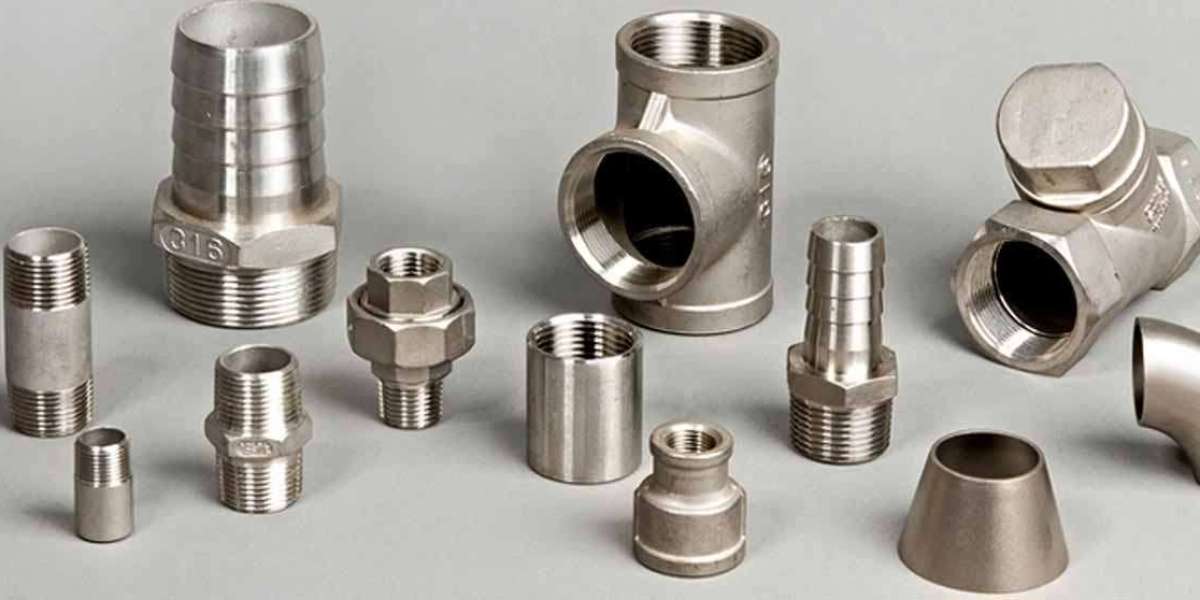Alloy 20 forged fittings are an essential component in various industries due to their superior resistance to corrosion, excellent mechanical properties, and outstanding durability. Manufactured from a nickel-iron-chromium-based alloy, Alloy 20 is specifically designed to withstand the harsh effects of sulfuric acid, making it a preferred choice in chemical and petrochemical industries. These forged fittings are available in a variety of types, such as elbows, tees, couplings, unions, and bushings, which are used for secure and leak-proof pipe connections in high-pressure applications.
What is Alloy 20?
Also known as Carpenter 20, Alloy 20 is a corrosion-resistant alloy that contains nickel, chromium, molybdenum, copper, and iron. This unique combination of elements provides it with excellent resistance to pitting, crevice corrosion, and stress corrosion cracking. It is particularly effective in acidic environments, especially those containing sulfuric acid. Because of its robustness and chemical resistance, Alloy 20 is widely used in industries such as pharmaceuticals, food processing, marine, and nuclear power.
Benefits of Alloy 20 Forged Fittings
Excellent Corrosion Resistance:
Alloy 20 forged fittings are best known for their ability to resist corrosion in a wide range of acidic and chloride-containing environments. This makes them ideal for industries that deal with aggressive chemicals.High Mechanical Strength:
These fittings offer excellent tensile and yield strength, making them suitable for high-pressure and high-temperature applications.Resistance to Stress Corrosion Cracking:
One of the key advantages of Alloy 20 is its superior resistance to stress corrosion cracking, especially in chloride-rich conditions.Good Fabricability:
Despite its strength, Alloy 20 remains easy to machine, weld, and fabricate. This allows it to be manufactured into complex shapes without compromising its structural integrity.Hygienic Properties:
Alloy 20’s resistance to corrosion and ability to withstand cleaning chemicals make it suitable for food and pharmaceutical industries where hygiene is critical.
Applications of Alloy 20 Forged Fittings
Due to their durability and corrosion-resistant properties, Alloy 20 forged fittings are used in:
Chemical processing plants handling sulfuric, nitric, or phosphoric acids.
Pharmaceutical manufacturing where purity and corrosion resistance are critical.
Food and beverage industries for sanitary fluid handling systems.
Marine applications where exposure to salt water can lead to rapid deterioration of standard metals.
Pulp and paper industries where chemicals like chlorine and sulfates are present.
Types of Alloy 20 Forged Fittings
Alloy 20 forged fittings come in a variety of styles and classes to match different piping systems. Common types include:
Elbows (90° and 45°) – used to change the direction of flow.
Tees – allow the flow to be split into two directions.
Couplings and Half-Couplings – used to connect two pieces of pipe.
Bushings – for joining pipes of different diameters.
Unions – enable easy disassembly and maintenance of the pipeline.
These fittings are available in pressure classes such as 2000#, 3000#, and 6000#, depending on the system’s requirements.
Conclusion
Alloy 20 forged fittings are a reliable and long-lasting solution for industrial piping systems, especially in environments exposed to aggressive chemicals. Their unmatched corrosion resistance, mechanical strength, and versatility make them a preferred choice across multiple industries. If you're looking for fittings that offer superior performance and value, Alloy 20 forged fittings are a smart investment for long-term efficiency and safety.







